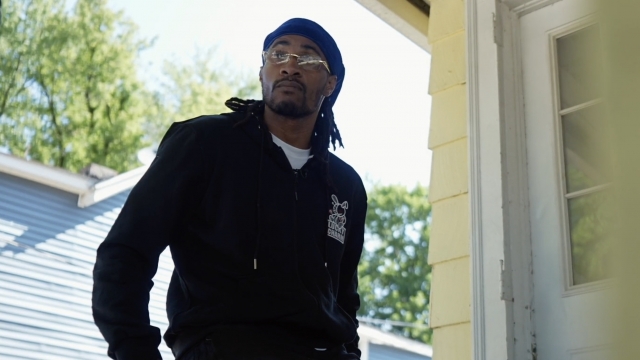The United States leads the world in incarceration — by a long shot — and some experts say the reason our incarceration rate is so high is because a lack of reentry programs leads many people back into the same cycles that put them in prison in the first place.
New beginnings don't just happen. They are unlocked through diligent steps that are taken by people like Brian Johnson.
The 33-year-old is just two months out of prison, and today is a big day. He's getting ready for a job interview stocking shelves at Walmart.
"I'm excited about it. I think the job will help with showing people that I'm changing," he said.
If Johnson succeeds, it will make him an exception since many people in his situation don't.
"The system, to me, adds to the recidivism rate," he said. "You know, I did a paper on this when I was in prison ... I was sad. Not only because you're incarcerated, isolated from society, but because you're sitting here like, 'Who do I ask for help?'"
As Johnson learned, help doesn't always come to those who are searching for it the most.
SEE MORE: DOJ allowing thousands of inmates to remain at home
Nationwide, more than half of the formerly incarcerated are unable to find stable employment within their first year of return, and 75% of them are re-arrested within their first three years of release, according to the Brookings Institution.
It's easy to write that off as a result of the choices these individuals make, without acknowledging a system that can make those choices the only ones available for survival.
One of those shortcomings is a lack of adequate reentry programs that the American Psychological Association says "leaves men and women with minimal preparation," making their reentry into society challenging.
Formerly incarcerated people are 10 times more likely to be homeless than the general population, according to the Prison Policy Initiative. They are also half as likely as others to get a call back from a prospective employer.
SEE MORE: More states pushing 'Clean Slate' legislation to clear former convicts
Johnson was one of those people who was placed into a homeless shelter for two weeks upon his release. Had it not been for the open arms of a cousin he's staying with now, Johnson worries he would probably still be there.
"You know, life is full of challenges and my thing is when I make the initial step or I make these steps to better my life and I'm going to the sign that says this is where help is at, you should have the answers," he said.
But a simple interview is Johnson's first step toward his new beginning. It's a door he has worked diligently to unlock as he hopes will defy the statistics that say he is more likely to fail than succeed.
"There's no reason to go back to prison," Johnson added. "I have a great support system and that's outside of the government. You know, these are family members and friends that have already lived that life that I'm about to start living."
Trending stories at Scrippsnews.com





